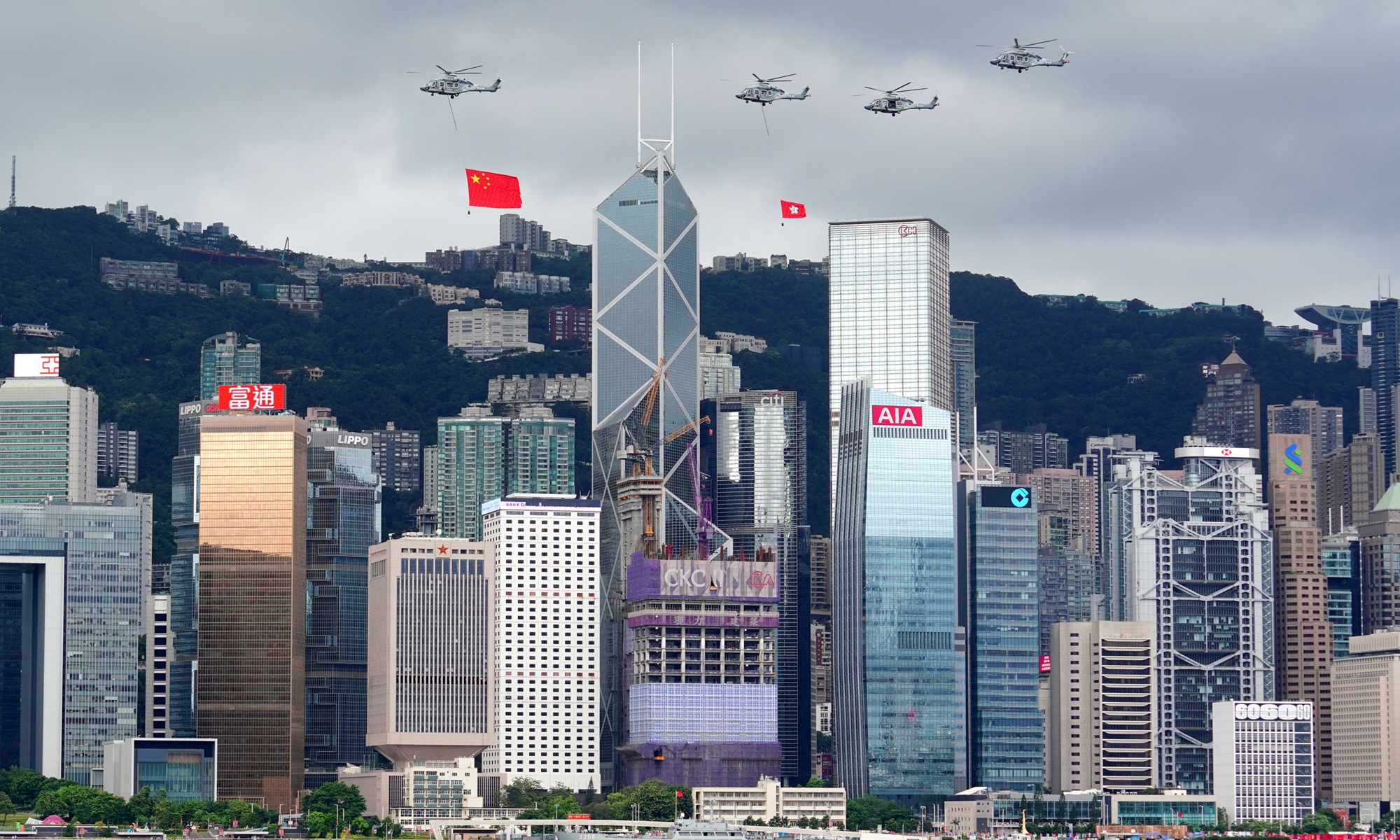
Victoria Harbour, Hong Kong (Photo: cnsphoto)
Recently, there was a "virtual debate" between Stephen Roach, former chairman of Morgan Stanley Asia, and Regina Ip Lau Suk-yee, convenor of Hong Kong Executive Council, and a Legislative Council member, over Hong Kong's economic prospects after Roach claimed that "Hong Kong is over" in a commentary piece published in the Financial Times in February. In an exclusive interview with the Global Times on Monday, Ip responded again to what she called "unfair remarks" of Roach.
Ip argued that Roach's remarks were sweeping generalizations, as Hong Kong's economic development should not be solely judged by its stock market performance, and the main reason for the sluggishness of the Hong Kong stock market is the impact of the high interest rates in the US.
In the interview with the Global Times on Monday, Ip said that Roach did come to Hong Kong in 2023, but he completely ignored the fact that the departure of Western funds is the main reason for the short-term decline in trading volume and the Hang Seng Index in Hong Kong, like "capital embargo," she pointed out, and it takes time for Hong Kong to attract funds from the Middle East and Southeast Asia.
"But Roach avoids discussing this," Ip said, noting that Roach had previously claimed that the Hong Kong stock market has been stagnant for 26 years, but in fact, the Hong Kong stock market had been the global IPO leader for seven consecutive years before 2019.
"Roach is a typical businessman. When there was money to be made in Hong Kong, he lauded that Hong Kong was good, but now that he can't make money in Hong Kong, he is pessimistic about the city," she said.
Some 22 years ago, when Ip served as the security chief of the HKSAR, she had advocated for the Article 23 legislation but didn't make it then. The current environment is "much better" than in 2002, Ip told the Global Times. "So far, the response from society to the Article 23 legislation has been calm, and the vast majority of people are able to accept it," she said, noting that this is mainly because after the social unrest in 2019, the threat to national security has shifted from being "abstract" to "concrete" for local residents in Hong Kong.
During the public consultation period for the Article 23 legislation, some scholars are debating how to balance the relationship between freedom and security, particularly legal experts who believe there should be clearer guidelines between what is legal and illegal.
Hong Kong is fulfilling its responsibilities under the international human rights covenants by ensuring basic human rights and freedoms, however, for instance, regarding freedom of speech, the freedom of expression is not absolute and can be lawfully restricted, according to the Article 19 of the International Covenant on Civil and Political Rights, Ip said.
"If you look at foreign social media platforms, they are often criticized for hosting inappropriate content, violence, and discriminatory or hateful speech. Freedom of speech is not absolute, and I believe we have already struck a balance," she said.
Moreover, the HKSAR's Department of Justice has stated that the current consultation documents are just suggestions, and definitions of what constitutes national security and external interference will be provided in the future, Ip noted.
Following public consultation on the Article 23 legislation, a number of Western politicians have begun attacking the development, raising so-called concerns over the use of "broad and vague" definitions in the legislation. UK Foreign Secretary David Cameron, citing the Sino-British Joint Declaration on Hong Kong, even asked the HKSAR to reconsider the legislation.
The UK's statement is the most absurd one yet, as it even mentioned the Sino-British Joint Declaration, but they have no constitutional responsibility for Hong Kong whatsoever and are not in a position to criticize, Ip said.
The Sino-British Joint Declaration consists of three statements [among other points]: first, China has decided to resume the exercise of sovereignty over Hong Kong; second, the UK declares the handover of Hong Kong in 1997; and the third, China states it will implement basic policies in accordance with the Basic Law, she noted.
"The UK has already stated that it has returned Hong Kong [to China], so they have no legal standing to make assertions, and their own national security laws are quite stringent. Therefore, the UK's statement is the most absurd," Ip added.




